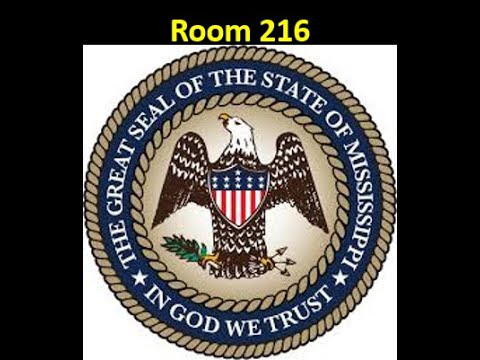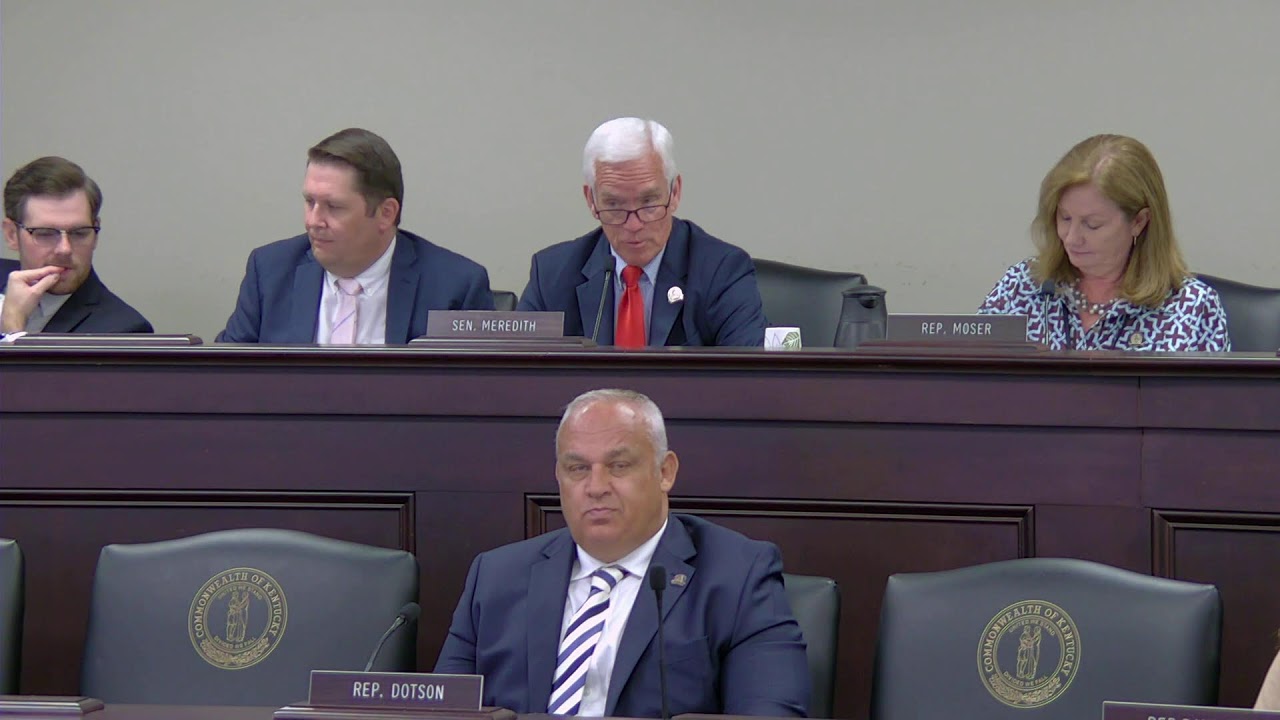Lawmakers In Two Red States Hold Hearings On Psychedelic Therapy’s Potential To Combat The Opioid Epidemic
From toxifillers.com with love
Lawmakers in two GOP-controlled state legislatures hosted discussions on the potential of the psychedelic ibogaine to treat addiction and other mental health conditions this week.
In Mississippi, the House Public Health and Human Services and Senate Public Health and Welfare held a three-hour joint hearing at which lawmakers heard from military veterans, scientific researchers and advocates on ibogaine’s therapeutic promise.
In Kentucky, the legislature’s Interim Joint Committee Health Services examined ibogaine as a potential way to treat opioid dependency as part of a broader hearing that also touched on other topics.
Rep. Sam Creekmore (R), who chairs the Mississippi House panel that cohosted the hearing in his state, said that “entire communities, have been scarred, families shattered, and too many lives cut short” by the opioid epidemic.
“On top of that, we face a growing mental health crisis that weighs heavily on our veterans, first responders and trauma survivors. We know the truth that current treatments, while essential, are not enough for everyone,” he said at the Thursday hearing. “Our responsibility as policymakers is not to embrace new solutions blindly, but neither can we turn our away from credible science, or from testimony from those who found hope where hope seemed lost.”
Creekmore, who recently authored an op-ed for Marijuana Moment about ibogaine, previously said the hearing was meant to help inform legislation he’s planning to introduce legislation, which he said is largely modeled after a bill that passed the Texas legislature and was signed into law in June.
That measure will create a state-backed research consortium to conduct clinical trials on ibogaine as a possible treatment for substance use disorders and other mental health conditions. The ultimate goal of the project is to develop the psychedelic into a prescription drug with U.S. Food and Drug Administration (FDA) approval.
Americans for Ibogaine CEO Bryan Hubbard told Mississippi lawmakers at the hearing that the “the objective here is to develop ibogaine as expeditiously and efficiently as possible through the creation of a single unified FDA trial that will involve multiple states across the country.”
Creekmore wants Mississippi to allocate $5 million to support the effort to conduct trials on ibogaine.
Thomas Recore, director of the state Department of Mental Health Medical Director, also spoke at the hearing, telling lawmakers that it is “clear” that ibogaine has enough potential to justify further studies.
Meanwhile, in Kentucky, lawmakers on Wednesday heard a presentation from a GOP senator who wants to invest state resources into research on ibogaine’s potential to address opioid addiction and other mental health issues.
Sen. Donald Douglas (R), who is also a doctor, said the current clinical treatment model that has been used “for decades” just “ain’t working.”
He told colleagues he plans to file legislature during the next session modeled on the new Texas ibogaine research funding law, noting that he’s part of a consortium of lawmakers from about 15 other states who are coordinating on the issue, The Lexington Herald-Leader reported.
In 2023, Kentucky officials had considered a plan to use $42 million from Kentucky’s opioid settlement fund for psychedelics research. But the effort, spearheaded at the time by Hubbard of Americans for Ibogaine when he served as chair of the Kentucky Opioid Commission, fell apart after he was replaced by a newly elected state attorney general.
Gov. Andy Beshear (D) on Thursday urged caution about ibogaine, saying “it can cause really significant reactions” and that “a lot more research needs to be done” on the psychedelic.
“You don’t tread lightly into something that can be that powerful or potentially be that damaging. This is what the FDA is for, this is what they ought to be researching,” he said, according to the Herald-Leader. “Let’s make sure that we’re not just looking at the next bright, shiny object, but that we’re recognizing the hard work with the structure we have in place, [which] has done so much to help our people.”
Meanwhile, at the federal level, a GOP senator recently said he’s “confident” that, under the Trump administration, lawmakers will help secure alternative treatment options for military veterans—including access to psychedelic medicine.
The head of the Department of Veterans Affairs (VA), Doug Collins, recently touted his role in promoting psychedelics access for veterans with serious mental health conditions, saying he “opened that door probably wider than most ever thought” was possible.
Collins, who raised the issue in a Cabinet meeting with the president, said “we’re going to do it the right way,” while advancing clinical trials investigating ibogaine, MDMA and psilocybin.
Last month, the secretary also reiterated that he’s “very open” to expanding access to psychedelics therapy for veterans—emphasizing that he’s intent on finding ways to “cure” people with serious mental health conditions and not just treat their surface-level symptoms.
Collins noted that VA either internally or through private partnerships is actively conducting about a dozen clinical trials into “various different substances that we’re seeing actually really good results on,” including one based at VA Bronx Health Care that’s investigating MDMA-assisted therapy with “actually really, really good results.”
During that interview, Collins was also shown a recent clip of Navy SEAL veteran Rob O’Neill, who killed Osama Bin Laden, talking about his theory that the federal government has intentionally avoided providing access to psychedelic medicine because cures are less profitable than long-term treatments. Collins responded by saying, “I’m going to tell you right now: This secretary of veterans affairs, myself, I want to heal people.”
Meanwhile, last month a GOP-controlled House committee approved an amendment attached to a must-pass defense bill that would require a “progress report” on an ongoing psychedelic therapy pilot program for active duty military service members and veterans.
Separately, bipartisan congressional lawmakers recently met with the VA secretary to discuss pathways to provide access to psychedelic medicine as an alternative treatment option for conditions such as PTSD.
After requesting the meeting with Collins in May, Reps. Lou Correa (D-CA) and Jack Bergman (R-MI)—founding co-chairs of the Congressional Psychedelic Advancing Therapies (PATH) Caucus—said the three had a productive conversations about advancing psychedelics therapy for the veteran community.
Collins has stood out as a VA secretary who’s especially passionate about exploring the potential of substances such as ibogaine and MDMA to provide relief from serious mental health conditions, coordinating with other officials including Robert F. Kennedy Jr., the head of HHS, who said recently that his aim is to free up plant-based medicine options within 12 months.
Former U.S. House Speaker Newt Gingrich (R-GA) separately said the psychedelic ibogaine represents an “astonishing breakthrough” in the nation’s current “sick care system” that’s left people with serious mental health conditions without access to promising alternative treatment options—and he intends to use his influence to advance the issue.
Also, the House recently included an amendment to a spending bill from Correa and Bergman that would encourage VA to support research into the benefits of psychedelics in treating medical conditions commonly affecting military veterans.
The lawmakers separately introduced a bill in April to provide $30 million in funding annually to establish psychedelics-focused “centers for excellence” at VA facilities, where veterans could receive novel treatment involving substances like psilocybin, MDMA and ibogaine.
Collins, for his part, also disclosed in April that he had an “eye-opening” talk with Kennedy about the therapeutic potential of psychedelic medicine. And he said he’s open to the idea of having the government provide vouchers to cover the costs of psychedelic therapy for veterans who receive services outside of VA as Congress considers pathways for access.
Bergman has also expressed optimism about the prospects of advancing psychedelics reform under Trump, arguing that the administration’s efforts to cut spending and the federal workforce will give agencies “spines” to tackle such complex issues.
Kennedy, for his part, also said in April that he had a “wonderful experience” with LSD at 15 years old, which he took because he thought he’d be able to see dinosaurs, as portrayed in a comic book he was a fan of.
Last October, Kennedy specifically criticized FDA under the prior administration over the agency’s “suppression of psychedelics” and a laundry list of other issues that he said amounted to a “war on public health” that would end under the Trump administration.
In December, VA separately announced that it’s providing $1.5 million in funding to study the efficacy of MDMA-assisted therapy for veterans with PTSD and alcohol use disorder (AUD).
Photo courtesy of Flickr/Scamperdale.




